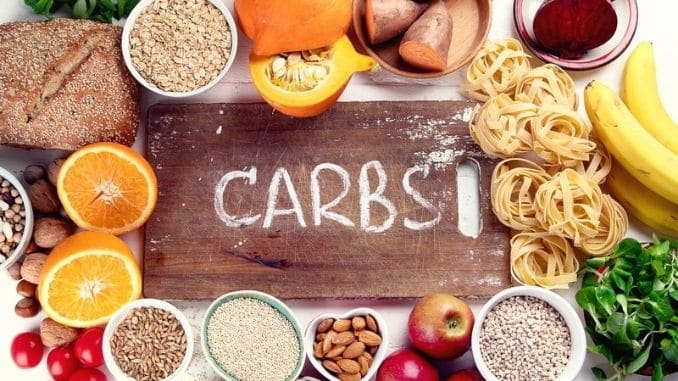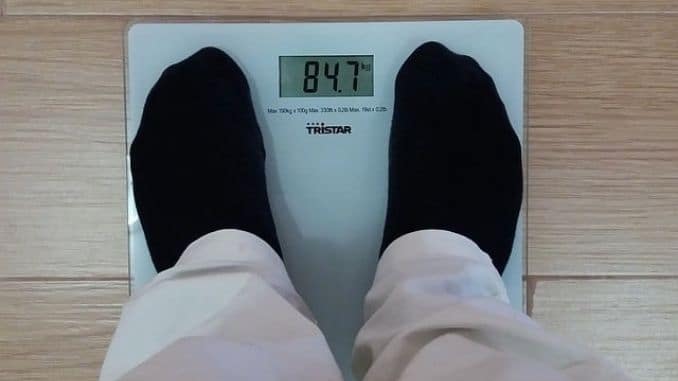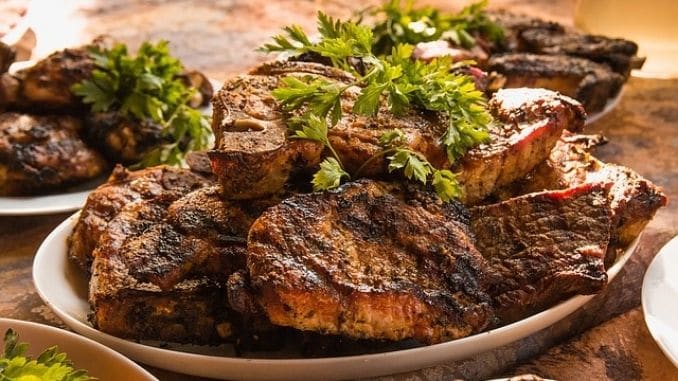
If you want to lose weight, you may be thinking about a low-carbohydrate (low-carb) diet.
These have been popular since the 1970s when the Atkins diet came onto the scene. Today, Atkins remains one of the leading low-carb diets, but it’s been joined by the ketogenic, Banting, and South Beach diets, among others.
The theory goes like this: cut way back on your intake of carbohydrates, and you’ll lose weight. Carbohydrates are the sugars, starches, and fibers found in fruits, grains, vegetables, and milk products. While major energy sources for the body, they also pack a calorie punch. When not immediately utilized, they easily convert into fat.
It makes sense, then, that eating fewer carbs could result in weight loss. In fact, many studies have found that low-carb diets work when it comes to losing weight — at least in the short-term.
But other studies suggest that low-carb diets can be dangerous to your health and may even shorten your life.
The Evidence in Favor of Low-carb Diets
First, it helps to understand that there are two different types of carbohydrates:
- Simple carbs: Also called “simple sugars,” these are made up of just one or two sugar molecules. The body can break down and absorb them quickly, so they tend to raise blood sugar levels faster than complex carbs. Simple carbs abound in table sugar, candy, sweetened beverages, cookies, cakes, and sugary cereals.
- Complex carbs: Also called “starches,” these are made up of long chains of sugar molecules, so the body needs more time to break them down and absorb them. Digested at a slower pace, complex carbs have a gentler impact on blood sugar, avoiding the rapid spikes associated with simple carbs. Examples of foods with complex carbs include legumes, grains, peas and potatoes.
Most low-carb diets require followers to cut way back on carbs and replace them with higher levels of protein and/or fat. For the most part, the diets work, at least when it comes to losing weight.
In a 2003 study, participants were randomly assigned to either a low-fat diet group or a low-carb diet group. After a year, the low-carb group lost more weight (7.3 percent of total body weight) compared to the low-fat group (4.5 percent of total body weight).
Other studies show similar results on weight-loss, but that’s not the only benefit that low-carb diets seem to provide. Some studies have found that they can help improve cholesterol and triglyceride levels and may help stabilize blood sugar levels.
Low-carb diets may even help boost metabolism. In a 2018 study, researchers tested 164 overweight or obese people age 18 to 65 years old. These participants were assigned randomly to one of three test diets:
- High carb (60 percent)
- Moderate carb (40 percent)
- Low carb (20 percent)
Results showed that those on the low-carb diet burned about 250 calories a day more than those on the high-carb diet, even though all the groups were the same weight.
But despite the positive evidence on these diets, there is just as much, if not more, negative evidence. Below are eight powerful reasons why a low-carb diet may not be the right choice for you.
1. Low-carb Diets Can Be Unsafe
Reasons Not to Cut Out Carbs: Some studies have raised concerns about how low-carb diets may affect human health. A recent large study from the Medical University of Lodz, Poland, for example, found that people who consumed low-carb diets were at a greater risk of premature death. Individual risks for diseases like coronary heart disease, stroke, and cancer also increased. The researchers recommended avoiding the tested diets.
For the study, researchers examined data from a nationally representative sample of over 24,000 participants in the United States National Health and Nutrition Examination Survey (NHANES).
Compared to participants with the highest carbohydrate consumption, those with the lowest intake had a 32 percent higher risk of all-cause death over an average of 6.4-years follow-up. In addition, risks from coronary heart disease, cerebrovascular disease, and cancer were increased by 51 percent, 50 percent, and 35 percent, respectively.
Study author Professor Maciej Banach wrote that while low-carb diets may be useful in the short term for losing weight, the study findings suggested that, overall, they were unsafe and should not be recommended.
2. Moderate Carb Intake May Help Prolong Life
Other studies have echoed the findings from the one above, but with one added detail.
Reasons Not to Cut Out Carbs: Researchers from Brigham and Women’s Hospital in Boston, Massachusetts, studied data from more than 15,000 people, age 45 to 64 years old, who were registered in the Atherosclerosis Risk in Communities study from 1987 to 1989. In the second stage of the study, they analyzed data involving more than 430,000 people from around the world.
Results showed that both a low intake of carbs ― less than 40 percent of total energy intake ― and a high intake of carbs ― more than 70 percent ― correlated with a higher risk of premature death.
A moderate carb intake, on the other hand, of about 50 to 55 percent of total energy intake, correlated with four more years of life expectancy.
Both too little and too many carbs were found to be harmful. A moderate amount was beneficial to long-term health.
3. Low-carb Diets Can Cause Digestive Distress
Reasons Not to Cut Out Carbs: Depending on what else you eat while on your low-carb diet, you could be setting yourself up for digestive problems.
Most low-carb diets suggest you fill in the remaining calories with meat, eggs, poultry, fish, and fats. Notice that these foods contain little, if any, fiber. That means your belly will have a hard time doing its job, and you may suffer from constipation.
You can get around this problem by eating more watery, fibrous low-carb veggies to keep things moving, but these may not satisfy you as well as the recommended foods and could leave you hungry.
You may also experience the opposite problem while on a low-carb diet — diarrhea and nausea. So the food tends to run right through you, particularly if you’re limiting your fat intake and eating high levels of protein.
4. Low-carb Diets Can Leave You Fatigued
Reasons Not to Cut Out Carbs: If you’re used to a daily workout or even a moderate daily exercise routine, you may have difficulty staying with it while on a low-carb diet. Carbohydrates help fuel your muscles. Playing a pivotal role in post-workout recovery, they replenish depleted glycogen stores in the muscles after exercise. Inadequate replenishment of these stores can compromise performance during your next workout.
Some studies show that cutting back on carbs will also reduce your endurance. In 2015, for example, researchers noted that despite renewed interest in high-fat, low-carb diets, “fat-rich diets do not improve training capacity or performance, but directly impair glycogenolysis and energy flux, limiting high-intensity ATP production.”
5. Low-carb Diets Can Reduce Focus and Concentration
Reasons Not to Cut Out Carbs: When it comes to fuel, your brain loves glucose, preferably from carbs. Without that glucose, you may be irritated or distracted more easily and have more trouble thinking, focusing, and concentrating.
In a 2009 study, researchers from Tufts University found that when dieters eliminated carbs from their meals, they performed more poorly on memory-based tasks than when they reduced calories but maintained carbs. The reintroduction of carbs restored cognitive skills to normal levels.
6. Low-carb Diets Can Damage the Heart
Reasons Not to Cut Out Carbs: Low-carb diets have been tied to heart arrhythmias in some studies. In 2019, for example, researchers examined health records from nearly 14,000 people spanning more than two decades.
Their discovery indicated a heightened risk of atrial fibrillation (A-fib), an irregular heartbeat, in association with low-carb diets. Regardless of the type of protein or fat used to replace the carbs. More specifically, those reporting a low carb intake were 18 percent more likely to develop A-fib than those with moderate carb intake, and 16 percent more likely than those with high carb intake.
Other studies have found similar results. Researchers aren’t sure why the diet might harm the heart this way, but they suggest caution. It could be that when people cut back on carbs, they often avoid grains, fruits, and vegetables. These foods are known to reduce inflammation, and inflammation has been associated with A-fib.
The additional proteins and fats people eat when on a low-carb diet could also be the problem. These two foods, when eaten at high levels, can cause oxidative stress that could lead to A-fib.
7. Low-carb Diets May Cause Muscle Cramps
Reasons Not to Cut Out Carbs: Low-carb diets that involve eating more fat have been linked with an increase in leg cramps. These can wake you up at night or trip you up while exercising.
If this happens to you, the problem is that your electrolytes are out of balance. As you lose weight, you lose fluids, and the balance of magnesium, potassium, calcium, sodium and other minerals is disrupted. As that happens, muscle cramps can result.
You can prevent this problem by making sure you’re staying properly hydrated and by replenishing electrolytes when needed.
8. Low-carb Diets Can Increase Risk of Kidney Stones
Reasons Not to Cut Out Carbs: Diets that are low in carbs and high in protein can put a strain on the kidneys. In a 2002 study, researchers found that this type of diet could increase the risk of kidney stones and reduce the body’s ability to absorb calcium after just six weeks.
Other studies have shown conflicting results. In 2012, scientists found that in healthy obese individuals, a low-carb, high-protein weight-loss diet showed no apparent harmful effects on the kidneys, emphasizing the need for further research.
In general, a high-protein diet causes the kidneys to work harder. If you’re perfectly healthy, that may not be an issue for you, but if your kidneys are at risk at all, it could cause problems. If you have any sort of kidney impairment, or if you have a family history of kidney stones, avoid low-carb diets and seek out other methods to lose weight.
For your guide to the best foods to heal and slim your body, check out The Best Foods that Rapidly Slim & Heal in 7 Days, here!







